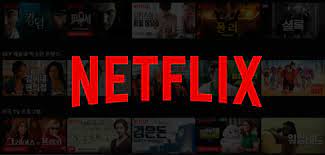When the news broke at the start of month that Netflix had cancelled 1899, their genre-juggling supernatural horror series, after one seemingly well-received series, it sent a shudder through the streaming industry. Shows get axed all the time in Hollywood, but 1899 seemed pretty cancel-proof. After all, its creators, Jantje Friese and Baran bo Odar, were also behind Dark, the German sci-fi show that helped birth the idea of Netflix as an international hit factory. Produced by Friese and Odar’s Netflix-backed Dark Ways studio, 1899, it was hoped, would be a model for how planet-conquering series would get made: amassing a global cast on a revolutionary virtual production stage, and slotting it into a moreish puzzle-box mystery series.
Initial signs were good: a number two placing among Netflix’s English language titles in its first three weeks, and talk of a further two series mapped out by its creators. Then, suddenly, the chop came – both a bizarrely rash decision and a fitting coda. In 2022, it felt like years of rampant speculation, growth and churned-outcontent had come back to bite the industry. Here are a few of the worrying signs of a streaming universe dangerously in flux.
Finished shows aren’t making it on to screens
In these strange times for streaming, even shows and films that are already “in the can” aren’t making it on to screens. You’ll no doubt remember the kerfuffle around HBO Max’s Batgirl film, discarded as a “content write-off” while it was in post-production, but TV has taken a bigger hit. Minx, HBO Max’s well-received feminist porn comedy, had its second season shelved despite filming being nearly completed (it’s thankfully been saved by Starz), while troubled network AMC (home to the Walking Dead universe among others) has shelved a number of returning and new shows that either had completed or were close to completing production. There seems to be a range of reasons for this spate of premature axings, but the big one is the dreaded tax write-off, with HBO Max’s parent company, the recently merged Warner Bros Discovery, scrambling to reduce an estimated $50m of debt.
… and existing shows are being removed from them
The promise of the streaming age was having every show and film ever made at your fingertips. And for much of the last decade, that has been the dream of the streamers themselves, who were busy amassing vast content libraries to lure in subscribers. Things are more complicated now. As part of the Warner Bros/Discovery restructuring bonfire, HBO Max have removed a ton of shows from their platform, including the one-time HBO crown jewel Westworld, and a chunk of its classic Looney Tunes shorts. It’s hoped that these shows might resurface elsewhere, but it does underline the ephemeral nature of content in the digital age; where once consumers would permanently own their own copy of a show, film or album, now they are effectively watching them through the living room window of the streaming services, who can switch them off on a whim.
Netflix has become more ruthless
When Netflix swaggered on to the streaming scene in the early 2010s, it was seen as a boon for creators. Here was a company willing to let talented people run their imaginations, doling out multiple series of sometimes very costly shows, and rarely intruding on the creators’ vision. Indulging these creatives was a smart move at the time for a company that needed a library of great content, fast – but things are different now. Today, Netflix is a more ruthless company, willing to cancel shows that aren’t performing to their expectations rather than let them find an audience. 1899, The Midnight Club and Archive 81 all fell at the first season hurdle, while shows that you once would have expected to run for as long as their creators felt necessary are bowing out after two – or at most three – seasons.
In fairness, Netflix were always going to have to remodel their business at some point, and the company have had to weather a challenging 2022, but the sheer savagery with which they have been cancelling shows could turn off both talent and viewers. As this Forbes article put it, “Netflix is becoming a graveyard stacked with dead series with unfinished conclusions.”
599 scripted TV shows were released in the US in 2022, an increase of 50 on the year before, and close to three times the number released in 2009, back before the streaming revolution properly began. Barely a week goes by without a handful of very good shows receiving next to no attention: for example in the last seven days, Netflix have released new series by two revered film-makers, Drive director Nicolas Winding Refn and Palme d’Or winner Hirokazu Kore-eda, and there has barely been a peep about them.
Clearly all this is unsustainable both culturally and financially, and it does seem like we might have just passed the peak of “peak TV”, with predictions of fewer releases next year – not to mention the prospect of a writers strike potentially shutting down production on scripted TV too. Just as unsustainable is the sheer number of platforms airing all these shows – just how many of them can viewers afford to subscribe to at once? It’s not hard to imagine a major streaming platform being forced to shut down in the coming years.
There are causes for optimism
For all the gloom, there’s plenty to be cheerful about. Less TV would, you hope, afford networks and streamers the opportunity to run existing shows for longer, rather than abruptly cancelling them. The deep-pocketed likes of Apple and Amazon continue to give creators space to money to make ambitious series (even if it’s unclear how many people are watching them). Despite wider issues at Disney, their streaming service Disney+ has experienced enormous growth, and looks set to continue to invest in high-quality shows, particularly from its subsidiary FX. In the UK, canny co-productions with US networks have allowed the BBC, Channel 4 and Sky to continue make high-quality TV without breaking the bank. And it’s impossible to deny that the streaming age is pumping out some seriously good TV … as long as streamers are willing to keep making it, of course.
If you are a writer then you can write for us
 Lifeyet News Lifeyet News
Lifeyet News Lifeyet News





